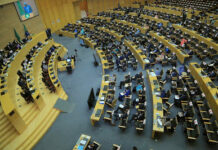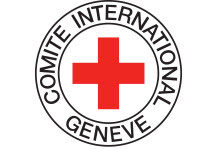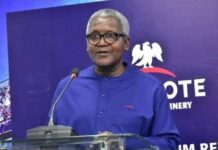Lukman Omikunle
Abdel Fattah was arrested many times for his activism in relation to human rights violations perpetrated by Egyptian security forces and the use of military courts to try civilians
UN High Commissioner for Human Rights Volker Türk on Tuesday expressed deep regret that the Egyptian authorities have not yet released blogger and activist Alaa Abdel Fattah, whose life is reportedly at imminent risk after a seven-month hunger strike while imprisoned in Wadi El Natrun.
“I urge the Government to immediately release Abdel Fattah from prison and provide him with the necessary medical treatment,” the High Commissioner said.
Over more than a decade, Abdel Fattah was arrested many times for his activism in relation to human rights violations perpetrated by Egyptian security forces and the use of military courts to try civilians. In 2015, he was sentenced to five years’ imprisonment. He was released in March 2019 and arrested again on 29 September. He was then held in pre-trial detention for two years before he was sentenced again in December 2021 to five years’ imprisonment on charges of publishing false news.
On 2 April 2022, Abdel Fattah started a partial hunger strike, with minimal calorie-intake. On 1 November, with his health already fragile, Abdel Fattah stepped up his hunger strike. He then stopped drinking water on the first day of the UN climate summit (COP27), 6 November.
“Abdel Fattah is in great danger. His dry hunger strike puts his life at acute risk,” the UN Human Rights Chief said.
“My Office and other UN Human Rights Mechanisms have raised Abdel Fattah’s case and the cases of other individuals arbitrarily deprived of their liberty and incarcerated after unfair trials on multiple occasions,” Türk said.
The High Commissioner noted that the resumption of the Presidential Pardon Committee had resulted in numerous individuals being released.
“I call on the Egyptian authorities to fulfil their human rights obligations and immediately release all those arbitrarily detained, including those in pre-trial detention, as well as those unfairly convicted,” he said. “No one should be detained for exercising their basic human rights or defending those of others,” Türk said.
“I also encourage the authorities to revise all laws that restrict civic space and curtail the rights to freedom of expression, assembly and association.”
The High Commissioner warned about possible reprisals against people supporting human rights defenders, in particular the family members of Abdel Fattah, who are in Egypt demanding his release. Türk reminded the Egyptian Government of its responsibility to protect the rights and security of all people within its jurisdiction.
SOURCE
Office of the UN High Commissioner for Human Rights (OHCHR)















